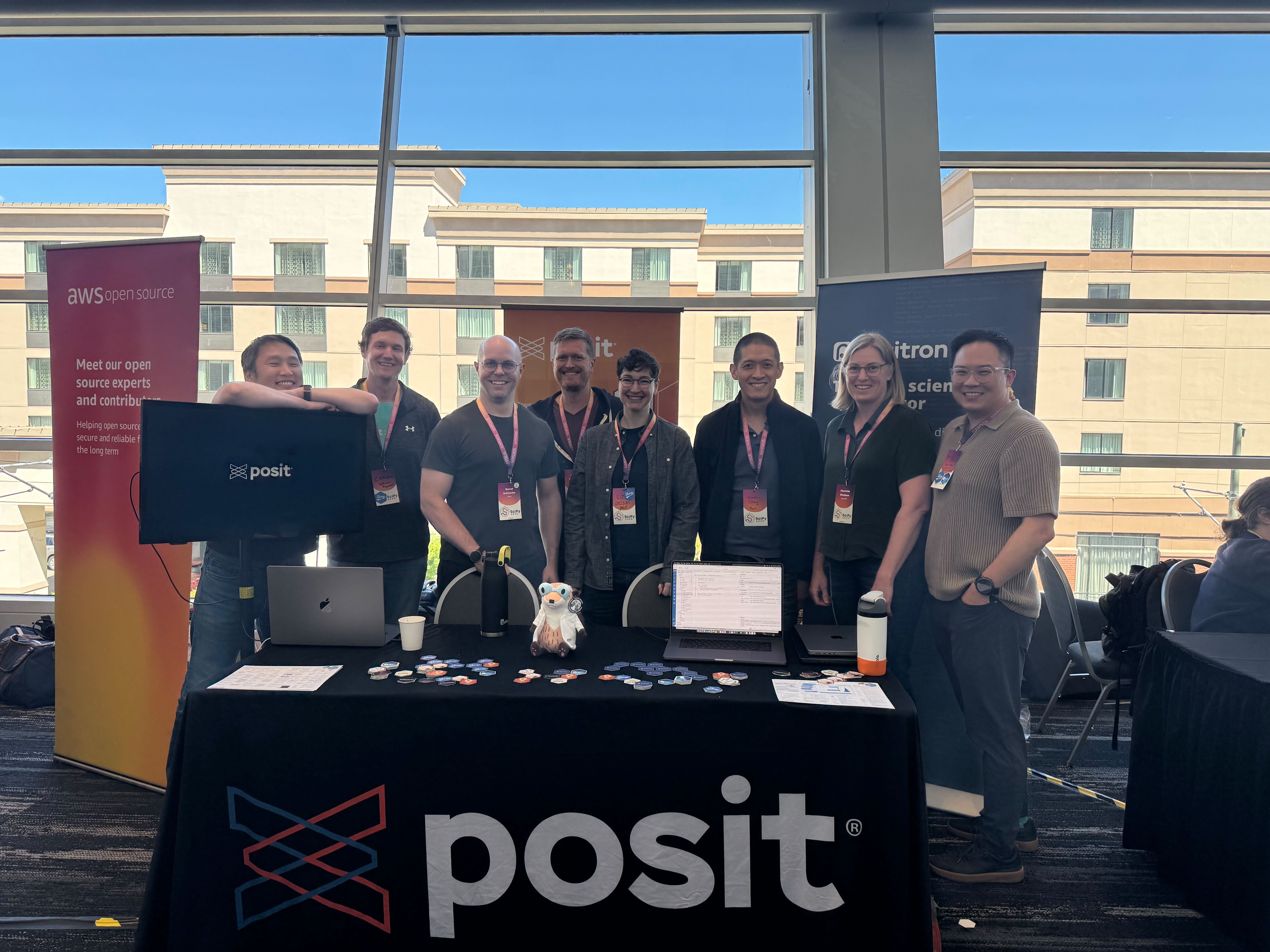The Shiny Team was at SciPy 2025! If you missed us at SciPy 2025 here’s what we were up to.

We just got back from a week at SciPy 2025 and had a great time meeting and talking with folks at the conference. If you didn’t get a chance to say hi to us, you can also find us online on GitHub or Discord. You can also learn more about Posit at posit.co.
If you missed a tutorial or talk we have all the information below. You’ll have to wait a bit for the SciPy folks to get all the tutorials and talks uploaded to Youtube.
Talks by Posit Folks
Shiny for Python: Building Production-Ready Dashboards in Python
Shiny is a framework for building web applications and data dashboards in Python. In this workshop, you will see how the basic building blocks of shiny can be extended to create your own scalable production-ready python applications.
At the end of this course you will be able to:
- Build a Shiny app in Python,
- How to integrate LLMs that can transparently work on your data
- Write unit tests and end-to-end tests for your shiny application,
- Deploy and share your application (for free!).
Keeping LLMs in Their Lane: Focused AI for Data Science and Research
LLMs are powerful, flexible, easy-to-use… and often wrong. This is a dangerous combination, especially for data analysis and scientific research, where correctness and reproducibility are core requirements.
Fortunately, it turns out that by carefully applying LLMs to narrower use cases, we can turn them into surprisingly reliable assistants that accelerate and enhance, rather than undermine, scientific work.
This is not just theory—I’ll showcase working examples of seamlessly integrating LLMs into analytic workflows, helping data scientists build interactive, intelligent applications without needing to be web developers. You’ll see firsthand how keeping LLMs focused lets us leverage their “intelligence” in a way that’s practical, rigorous, and reproducible.
This talk is for Python data scientists, researchers, and developers looking to integrate AI into their work in a practical, responsible way—or skeptical that it’s even possible.
User guides: engaging new users, delighting old ones
User guides are the piece you often hit right after clicking the “Learn” or “Get Started” button in a package’s documentation. They’re responsible for onboarding new users, and providing a learning path through a package. Surprisingly, while pieces of documentation like the API Reference tend to be the same, the design of user guides tend to differ across packages.
In this talk, I’ll discuss how to design an effective user guide for open source software. I’ll explain how the guides for Polars, DuckDB, and FastAPI balance working end-to-end like a course, with being browsable like a reference.
From One Notebook to Many Reports: Automating with Quarto
Would you rather read a “Climate summary” or a “Climate summary for exactly where you live”? Producing documents that tailor your scientific results to an individual or their situation increases understanding, engagement, and connection. But, producing many reports can be onerous.
If you are looking for a way to automate producing many reports, or you produce reports like this but find yourself in copy-and-paste hell, come along to learn how Quarto solves this problem with parameterized reports - you create a single Python notebook, but you generate many beautiful customized PDFs.